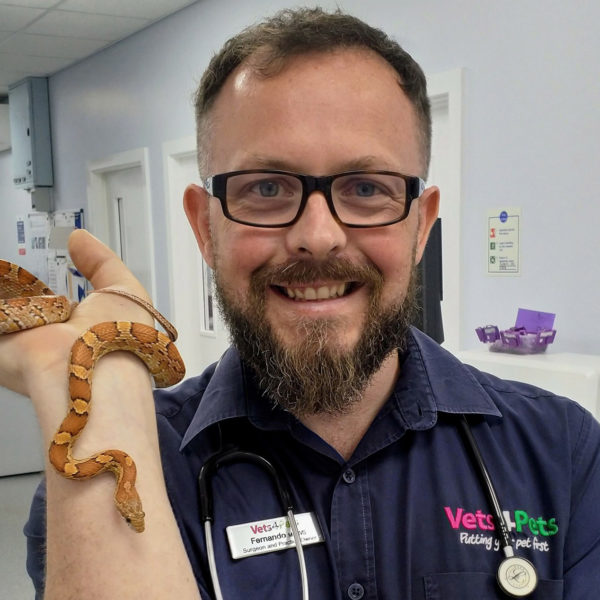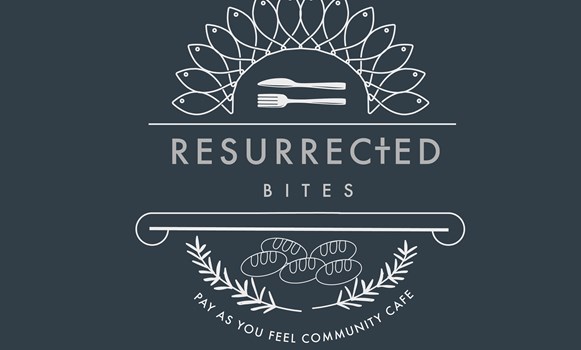Show Notes
0 min 33s: How have you found yourself in Harrogate and why did you become a vet? I arrived to Harrogate 16 years this week. I was born in South Africa and then we moved to Portugal when I was six years old. I decided to be a vet at the last minute, influenced by my sister who is a doctor. We used to live in a rural area of Portugal and I just had always a passion for animals. Previous to that, I lived in Madeira Island. It was quite a natural place.
2 mins 25s: Did you study Veterinary Practice at university? I applied to Lisbon University’s Veterinary Faculty, the oldest in Portugal. Initially, it was set up for vets to craft horses for the army which evolved to cover all bases in terms of research and veterinary. When I finished university, I went to Holland to be a farm vet, then I went back to Portugal and worked in a very large dairy farm. After that, I had the opportunity to work for the farmers association in Algarve with the main objective to eradicate brucellosis. It was a very interesting job for a young vet because they have these small farms with goats and sheep. We took blood samples of these animals to identify the ones that had brucellosis. The farmers would be notified to then cull those animals and help to eradicate the disease in Portugal, which was still present.
6 mins 33s: Were there no mass killings or BSE? With BSE, it was a more methodical. Basically, they would test the animals that were showing the signs and then all the animals that had contact with an animal that had the symptoms and was positive, they had to be culled. There was still a lot of culling, unfortunately, at the time. Any animal that had contact had to be culled but it was a more clinical approach. All cows now have an individual number so that can be traced and all the movements are recorded. If they find a positive animal, they can go through the records and catch all that caught it. It was a very precise and very methodical approach to eradicate BSE as we culled.
8mins 29s: How have you got from dealing with the BSE crisis to being a very well-known vet in Harrogate? What was the next stage in your career? I always had the objective to go back to practice. Initially, I didn’t know which practice I would have, if it would be a farm practice or small animals but life leads us to certain areas. And especially after having children, the small animals, the pets reignited the passion for that.
10mins 38s: When did you set up have Vets for Pets franchise at New Park? It was in October 2014.
11mins 03s: Tell us about your particular specialism in dogs or cats, and about your practice. We quite generally stick all around, I’d say. We are a cat friendly practice and we take special precautions for cats to feel welcome with us.
11mins 38s: Please explain those special precautions. There’s actually an internationally recognized standard for being a cat friendly practice and we achieved that standard soon after we opened. Also, on the design process of the practice, I had a quite a big input in making sure that we would have a separate cat ward. When cats are in-patients or when they’re with us for operations, for the nutrients, they’re not in the same ward as dogs, for example.
14mins 33s: Is there a right way for giving medication to a cat? So, usually, I cannot put my elbow on the table. So, the back, the bottom to my left elbow. And then with my left hand I gently open the mouth, just press the cheeks, and then with my right small finger I open the mouth and then with my indicating thumb, I put the tablet in. And when we open the mouth of the cat, they cannot curve like a V shape, the tongue. So, that’s where you should aim. When you drop the tablet, just close and massage the bottom of the chin and they usually lick. And when they lick, the tablet is in.
17mins 04s: Do you prefer cat people or dog people? I don’t see a distinction there. They are distinct but I don’t have a preference. I feel that I’m equally a cat person and a dog person.
18mins 16s: What are your top tips for looking after dogs? The main thing is to take your dog to the vets at least once a year and have the annual vaccinations. Each country has their recommended core vaccinations for potentially fatal diseases. We also check them over, give recommendations and we always ask about any concerns with their pet. From their subtle comments we can pick up on things and we can be on top of their health. If people get a puppy, have them socialise, not only with other dogs, but also with different people, so they can be relaxed and confident in different settings.
20mins 36s: How frequently should people bathe their dogs or even should they bathe their dogs? Depends of the breed as well. So, obviously, if dog gets soiled from their walks on a daily basis, probably they need a bath and dry daily. If it’s more a lapdog, it’s in a clean environment, probably doesn’t need it so often.
21mins 09s: Should we be brushing our dog’s teeth? So, how do you do it? Is it with Colgate? No, not Colgate. Usually human toothpastes contain a lot of fluoride which is actually toxic for dogs and pets in general because they tend to ingest as well. So, we cannot just brush it and spit it out but dogs are likely to swallow it. So, human toothpaste is not recommended.
21mins 47s: How often should you brush a dog’s teeth? I would recommend at least once a week with this, what we call, enzymatic toothpaste for pets, which contain enzymes which break down the tartar that builds up. There’s a variety of different brands and different flavours. So, stick with one that your pet will like. Sometimes you don’t need to really brush with an actual brush. You can just rub with your finger on the teeth and gums and that’s more than enough. In cats, for example, just put a bit of this enzymatic toothpaste in their paws and they’ll lick, they’ll bring it into their mouth and it will dissolve around the mouth and that will do the work. That’s more than enough.
28mins 19s: What are the strangest animals or the most unusual animals that you’ve had here in Harrogate? I had a pet goat coming in to be neutered. And as long as it’s a pet, I can see any animal. Basically, the practice is not licensed, let’s say, for farm animals, so for livestock, but as long as it’s a pet, we can see.
30mins 09s: Is there anything that the people of Harrogate do with their dogs, which is unusual or any particular animal that people have lots of or don’t have lots of? We’ve got dog owners and cat owners, rabbit owners, guinea pig owners. There’s not much difference there. I think something that probably strikes me more as Harrogate specific is the diversity of the clients. We’ve got clients from all over the world and some of these pets come with them. I’ve got cats that come from Japan and United States, Brazil, all over Europe. It’s fascinating that we have such a cosmopolitan pet community and that’s quite a nice thing and quite unique for Harrogate.
31mins 17s: Do you have any thoughts on dogs in bedrooms? That’s a more behavioural area, which is outside my clinical competence but if I hear someone that sleep with the dogs, I don’t tend to feel shocked by that. And I see very well-behaved dogs that sleep with their owners and dogs that don’t sleep with the owners that are less well behaved.
32mins 19s: Do you have any tips for people who want to give a stray dog a home or for puppies? Usually charities are pretty good at assessing the animal and they can give information to the new owners and assess if it’s right for them as well. In terms of puppies, there’s a lot of talk of puppy trade and puppy farms; some of them may be illegally traded. People need to be more careful when they get a puppy that it’s coming from a genuine place. If people decide to get a puppy, see the mum of the puppy. If you don’t see the mum with the puppy, that could be an indication that these might be chains of illegal puppy traders. They will happily show the mum of the puppies to give them the assurance that they were born in that family.
35mins 09s: How does a dog react to getting hit by a car and then waking up and it’s without a leg? Only sometimes when blood circulation is compromised that amputation is the best option. In my experience, they aren’t self-conscious. As long as they’re fed and have the attention of the owners, that’s what matters to them. When we have to go through an amputation, when the leg is gone, they feel better because they know that it wasn’t good anymore. They actually perk up and recover much quicker and respond to pain relief much better than when they have the injured leg that needs amputation.
37mins 13s: What happens to the good leg? The good leg tends to get stronger. They develop extra mass. Sometimes that needs to be taken care through physiotherapy because they may have muscle pains. Usually, if they’re struggling, there are things that can be done. One thing that is important is to keep a healthy weight so they don’t carry extra fat, for example.
38mins 18s: Do you have any thoughts, observations, tips you wish to give to my listeners? I would recommend everybody looking after a pet to have them registered with the vets, so if they need to book an appointment, they can just easily just book it in. The other advice I’d give is preventative healthcare. So, vaccinations and flea removal and parasites. That’s the foundation of looking after a pet.
Further Listening
More The Harrogate Podcast podcasts.











